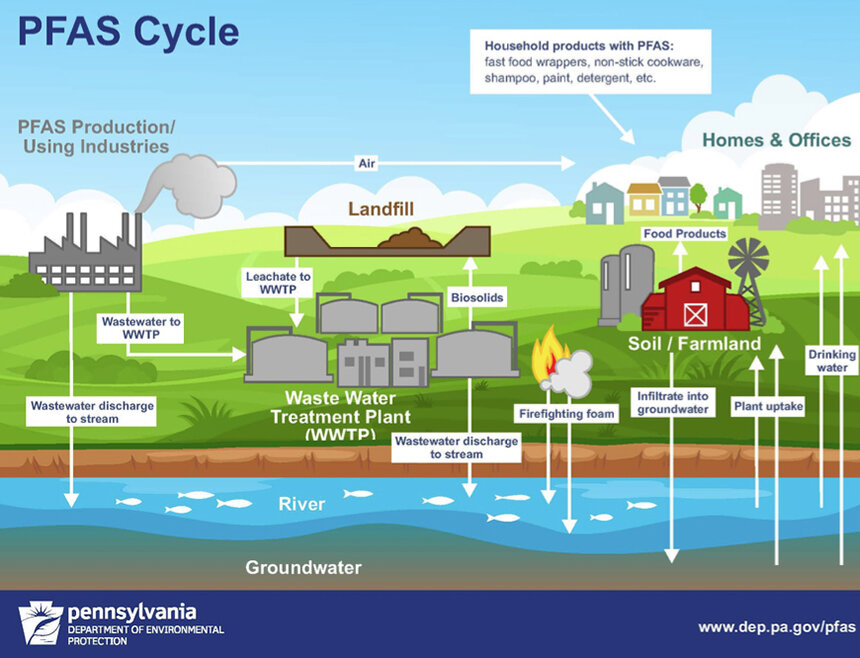R.I. School Districts Asked to Enforce Bus Anti-Idling Laws
November 21, 2018
The Rhode Island departments of environmental management, health, and Elementary and Secondary Education (RIDE) are enlisting the support of local school districts to protect schoolchildren and their bus drivers from breathing excessive amounts of diesel exhaust emissions.
The agencies, in a joint letter to all Rhode Island school superintendents, are asking the school districts to enforce state air pollution control regulations that limit school bus idling time and encouraging school transportation providers to replace aging diesel buses with more efficient models.
“By shutting off bus engines immediately upon reaching destinations, and not restarting them until ready to depart, school districts can bring important environmental and public health benefits to all Rhode Islanders,” Department of Environmental Management director Janet Coit said. “Despite marked improvements in air quality over the past two decades, pollution from small particles in diesel exhaust continues to impact Rhode Island’s environment and contribute to climate change and smog. Now is the time for school districts across the state to take simple, commonsense actions to protect air quality.”
Diesel exhaust from idling school buses can pose a health risk to both students and the drivers, according to the Rhode Island Department of Health (DOH). As school buses idle waiting for students, the diesel exhaust concentrates at ground level and can enter both the passenger compartments of the buses and the school classrooms through building ventilation systems.
Diesel exhaust is hazardous to human health, is carcinogenic, and is particularly harmful to children and seniors, according to DOH. Tiny particles in diesel exhaust can lodge deep within human lungs, where they can trigger asthma attacks and stunt lung growth in children. DOH officials said asthma is reaching epidemic proportions in Rhode Island and is the most common chronic disease in children, responsible for the most school absences in the state.
“We know that regular exposure to high levels of diesel emissions can have serious effects on respiratory health, especially for people with underlying conditions, such as asthma,” DOH director Dr. Nicole Alexander-Scott said. “By replacing aging diesel buses and limiting idling time, school districts throughout the state have an opportunity to create safer learning and work environments for their students, drivers, and school personnel.”
School bus idling also wastes money. On average, an idling vehicle burns a gallon of fuel an hour. Idling can also increase wear and tear on the engine, resulting in greater maintenance costs and reducing the life of the engine.
The Rhode Island Diesel Engine Anti-Idling Program prohibits the unnecessary idling of diesel-powered vehicles and equipment. Under this regulation, idling of diesel-powered vehicles is limited to 5 consecutive minutes in any 60-minute period, except as provided in certain exempt situations, such as when it’s necessary to operate defrosting, heating, or cooling equipment to ensure the health or safety of the driver or passengers.
A school bus may idle for up to 15 minutes an hour when temperatures are between 0 degrees and 32 degrees, and as needed when temperatures are below 0 degrees, to provide heat. A passenger bus may idle a maximum of 15 minutes an hour to maintain passenger comfort while non-driver passengers are onboard whenever temperatures are below 50 degrees.
Federal funding is available to public and private fleet owners for replacement of old diesel school buses through the School Bus Rebate Program.




Wow! My daughter is a Junior in college and now RIDEM is asking schools buses to stop idling. When my daughter attended elementary school, yes I said elementary school, I asked that the school buses stop idling near the school due to my daughter being very asthmatic. Then during her high school days, when she was trying to get a work permit, I came across King Philip’s High School having signage stating that vehicles too cannot sit idle near schools. Why stop with only diesel , when Massachusetts has http://webserver.rilin.state.ri.us/Statutes/TITLE31/31-16.1/31-16.1-3.HTM . Read more on it here https://www.mtholyoke.edu/sites/default/files/ehs/docs/massidlinglaw.pdf and here http://hollistonreporter.com/article/9845/idling-law-goes-unnoticed.html and lastly https://patch.com/massachusetts/medfield/high-school-helps-bring-awareness-no-idling-law-0 . Here is an informational kit https://www.mass.gov/files/documents/2016/08/uj/depirkit.pdf on reducing air pollution that includes a parent’s pledge to protect the quality of air in ones COMMUNITY by not idling. It requires a school’s involvement ! There may not be a Rhode Island law stopping cars, pick up trucks, SUVs or RVs from unnecessary idling, but let us all stop idling our vehicles and STOP using the REMOTE CAR STARTER
https://www.ncbi.nlm.nih.gov/pmc/articles/PMC2672360/ as all vehicles pollute.